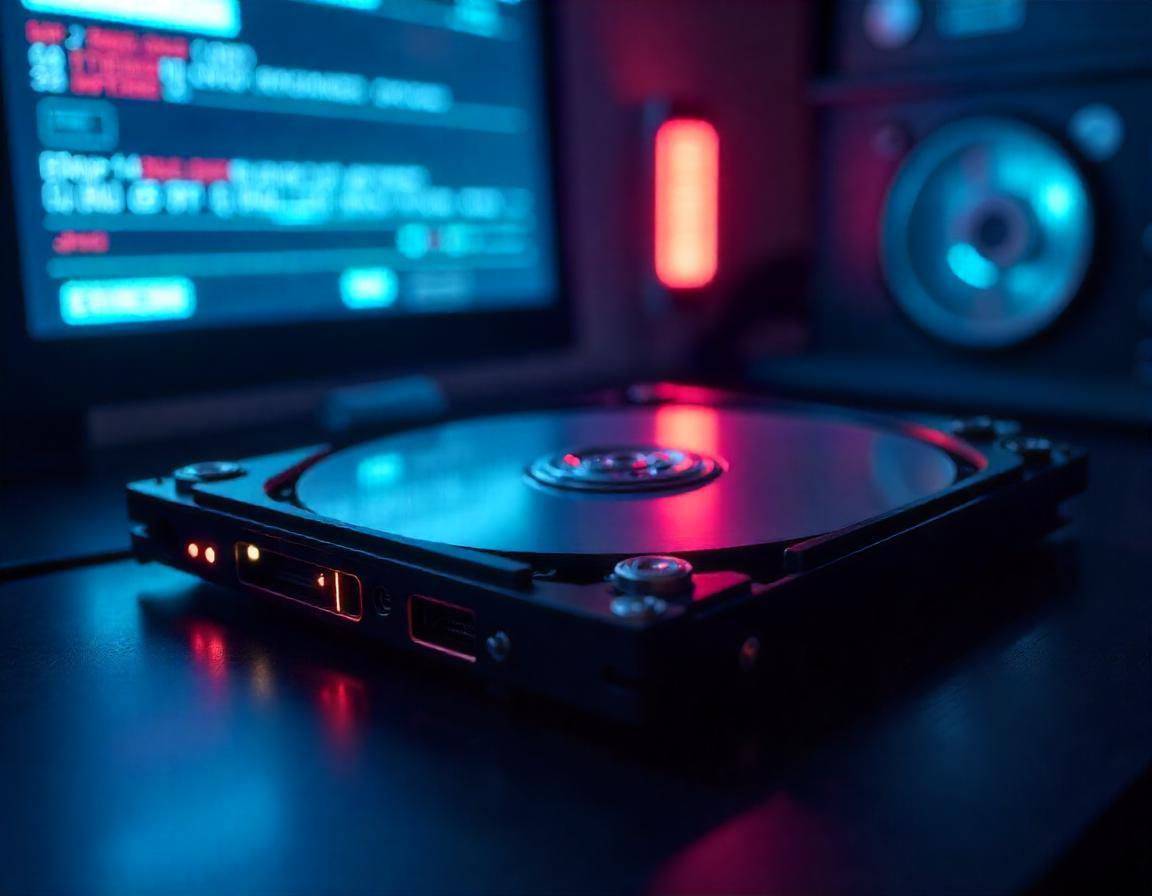Published on: November 8, 2024 | 5 minute read
Hard drives are crucial in our digital lives. They are able to store everything from cherished memories to important work documents. However, like any technology, they can encounter issues. Some common hard drive problems can arise unexpectedly. These result in possible data loss and downtime. In this guide, we will examine various hard drive issues and their solutions to help you maintain your storage devices, prolong your hard drive lifespan, and safeguard your data.
1. Slow Performance
Any type of hard drive can start to slow down over time. This is the same for either HDDs or SSDs, and causes can range from fragmentation to an overloaded storage drive.
-
Solution:
Regular maintenance is key. Start with simple steps like cleaning up unnecessary files or emptying the recycle bin. For HDDs, consider defragmentation, which optimizes the drive’s layout. For SSDs, avoid defragmentation (it’s not necessary), but perform regular firmware updates for optimal SSD optimization.
Related Product: Check out our SSD options on UNIXSurplus for faster performance.
2. Overheating
Hard drives such as those found in laptops or compact computers are prone to overheating. Excess heat can damage your drive, reducing its lifespan.
-
Solution:
Make sure your hard drive has adequate ventilation. Avoid blocking vents, use cooling pads for laptops, and consider adding fans to desktop setups if needed. Computer maintenance also includes regular dusting to prevent buildup in vents and around components.
3. Corrupted Data
Data corruption can occur due to sudden power loss, malware, or file transfer interruptions, resulting in lost or inaccessible files.
-
Solution:
Regular data backup is crucial. Always maintain at least one backup on a separate device or cloud storage. In cases of corruption, use disk checking tools, which can sometimes recover corrupted files. For severe corruption, data recovery software may be necessary.
4. Bad Sectors
Bad sectors are portions of the drive that become unusable, leading to slowdowns or data loss if they hold critical information
-
Solution:
Use disk-checking utilities that come with your OS to scan for and repair bad sectors. If bad sectors are a recurring issue, consider upgrading to a new drive.
5. Drive Not Recognized
Sometimes, your hard drive may suddenly disappear from your computer’s settings, usually due to connection issues or firmware glitches.
-
Solution:
First, check physical connections, especially if it’s an external drive. For internal drives, double-check BIOS settings. Updating drivers can also resolve recognition issues, as can using different USB ports or cables for external drives.
Prolonging Your Hard Drive Lifespan
-
Regular Maintenance
Hard drive maintenance should be a regular part of your tech care routine. Clear out old files, update firmware, and scan for any early signs of trouble. This will help prolong your drive’s performance and stability.
-
Limit Write Cycles (for SSDs)
SSDs have limited write cycles, so avoid unnecessary file write operations. Download large files directly to the drive to avoid double writing and use cloud services for frequently edited files.
-
Proper Shutdowns
The improper way of shutting down your PC can lead to data storage corruption. Avoid this by making sure to shut down your computer completely. Another way is to avoid powering off the system while files are in use.
-
External Protection
For external hard drives, be cautious about sudden movements during data transfer, as this can cause physical damage. Be very careful when handling external hard drives. You should also use padded storage bags.
Troubleshooting Tips for Common Hard Drive Problems
-
DIY Tech Fixes
For the tech-savvy, there are DIY methods for addressing many hard drive issues. Use software diagnostics to scan for problems, keep your OS updated, and if comfortable, swap out failing hard drives with new ones
-
Advanced Data Recovery
In severe cases, a professional data recovery service might be your best option, especially when critical data is at stake. Although for home or SMB users, a specialized recovery software can sometimes restore lost files at a fraction of the cost.
FAQs
Q1: How often should hard drive back ups be done?
Answer: At least once a week. Some do it daily however for files critical to your work or personal life.
Q2: What are the signs that my hard drive is failing?
Answer: Symptoms include frequent crashes, slow data transfer, strange noises, and repeated data corruption. Consider replacing the drive if you notice multiple signs
Q3: Can I use the same hard drive across multiple devices?
Answer: Yes, but ensure compatibility with each device’s operating system and file system. For instance, NTFS drives can be read by Windows but require third-party software on MacOS.
Q4: Any tips to avoid data loss because of malware?
Answer: Regularly scan your computer with compatible antivirus software. Avoid suspicious downloads. Last but not least, use secure passwords.
Q5: Are SSDs more reliable than HDDs regarding this problem?
Answer: SSDs generally have fewer moving parts and are thus less prone to physical damage. However, they have a limited number of write cycles, so lifespan can depend on usage.
Conclusion
Maintaining your hard drive can save you from unexpected data loss, slowdowns, and even costly repairs. By keeping up with hard drive maintenance, you can optimize its performance, increase its lifespan, and protect your files. Consider proactive care and regular data backup as your first line of defense.


